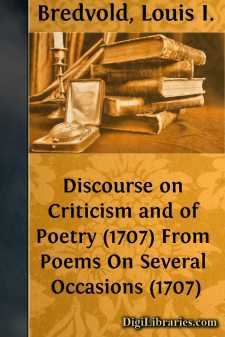Categories
- Antiques & Collectibles 13
- Architecture 36
- Art 48
- Bibles 22
- Biography & Autobiography 815
- Body, Mind & Spirit 144
- Business & Economics 28
- Children's Books 18
- Children's Fiction 14
- Computers 4
- Cooking 94
- Crafts & Hobbies 4
- Drama 346
- Education 58
- Family & Relationships 59
- Fiction 11834
- Games 19
- Gardening 17
- Health & Fitness 34
- History 1378
- House & Home 1
- Humor 147
- Juvenile Fiction 1873
- Juvenile Nonfiction 202
- Language Arts & Disciplines 89
- Law 16
- Literary Collections 686
- Literary Criticism 179
- Mathematics 13
- Medical 41
- Music 40
- Nature 179
- Non-Classifiable 1768
- Performing Arts 7
- Periodicals 1453
- Philosophy 65
- Photography 2
- Poetry 896
- Political Science 203
- Psychology 44
- Reference 154
- Religion 515
- Science 126
- Self-Help 85
- Social Science 82
- Sports & Recreation 34
- Study Aids 3
- Technology & Engineering 59
- Transportation 23
- Travel 463
- True Crime 29
Our website is made possible by displaying online advertisements to our visitors.
Please consider supporting us by disabling your ad blocker.
Discourse on Criticism and of Poetry (1707) From Poems On Several Occasions (1707)
Categories:
Description:
Excerpt
Introduction
What little is known of the life of Samuel Cobb (1675-1713) may be found in the brief article in the Dictionary of National Biography by W.P. Courtney. He was born in London, and educated at Christ's Hospital and at Trinity College, Cambridge, where he obtained the degrees of B.A., 1698, and M.A., 1702. He was appointed "under grammar master" at Christ's Hospital in 1702 and continued his connection with this school until his early death. He had a reputation for wit and learning, and also for imbibing somewhat too freely. In his poetry he especially cultivated the style of the free Pindaric ode, a predilection which won him a mention without honor in Johnson's life of Pope (Lives of the Poets, ed. Birkbeck Hill, III, 227). Even the heroic couplets of his poem on "Poetry" aim rather at pseudo-Pindaric diffuseness than at epigrammatic concentration of statement. As a critic Cobb deserves attention in spite of his mediocrity, or even because of it. He helps to fill out the picture of the literary London of his time, and his opinions and tastes provide valuable side-lights on such greater men as Dennis, Addison, and Pope. "Of Poetry" belongs to the prolific literary type of "progress poems," in which the modern student finds illuminating statements as to how the eighteenth century surveyed and evaluated past literary traditions. The list of Cobb's publications in the Cambridge Bibliography suggests that he enjoyed some degree of popularity. His volume, Poems on Several Occasions, was published in 1707, and reprinted in enlarged form in 1709 and 1710. The reproduction herewith of the Preface "On Criticism" and the versified discourse "Of Poetry" is from a copy of the 1707 edition in the Newberry Library, in Chicago.
Louis I. Bredvold
University of Michigan
In a Letter to Richard Carter Esq; late of the Middle-Temple, now living in Barbadoes.
SIR,
The Muses are said to be the Daughters of Memory: A Poet therefore must lay down his Title to their Favour, who can be forgetful of a Friend, like You, whose polite Knowledge, instructive Conversation, and particulur Generosity to my self, have left such strong Impressions upon my Mind, as defy the Power of Absence to remove them. I scarce believe Death it self can blot out an Idea so firmly imprinted. The Soul, when it leaves this earthly Habitation, and has no more Use for those Vertues, which were serviceable in the Conduct of human Life, such as Temperance, Fortitude and the like, will certainly carry Love and Gratitude along with it to Heaven. This may suffice to let the World know what Obligations you have laid upon me.
By this Letter (the room of which, for your sake I could willingly have supply'd) you will plainly see, that no Place, however remote, is able to secure you from the Zeal of a Friend, and the Vanity of a Poet.
For tho' retiring to the Western Isles,
At the long Distance of five thousand Miles,
You've chang'd dear London for your Native Seat,
And think Barbadoes is a safe Retreat;
You highly err: Nor is the Wat'ry Fence
Sufficient Guard against Impertinence....


